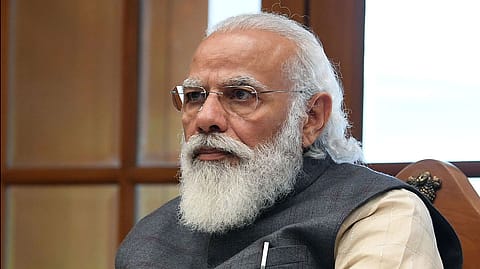Half of India's electricity will come from renewable energy by 2030: PM Modi
At the G20 summit in Bali, Prime Minister Modi urged countries to not put any restrictions on the supply of energy.

Prime Minister Narendra Modi on Tuesday said that half of India's electricity will be generated from renewable sources by 2030 as the country remains committed to clean energy.
India's energy-security is also important for global growth, as it is the world's fastest growing economy, Modi said at the G20 summit in Bali.
"We must not promote any restrictions on the supply of energy and stability in the energy market should be ensured," the PM said, adding that time-bound and affordable finance and sustainable supply of technology to developing countries is essential for inclusive energy transition.
These comments come at a time when the Russian oil share in India's import basket has climbed to 22% in October from just 1% before the beginning of the Ukraine war. The share of India's traditional suppliers, Iraq and Saudi Arabia decreased to 20.5% and 16%, respectively.
On the Russia-Ukraine war, the prime minister said that countries have to find a way to return to the path of ceasefire and diplomacy in Ukraine.
"Over the past century, the Second World War wreaked havoc in the world. After that, the leaders of that time made a serious effort to take the path of peace. Now it's our turn. The onus of creating a new world order for the post-Covid period lies on our shoulders. The need of the hour is to show concrete and collective resolve to ensure peace, harmony and security in the world. I am confident that next year when the G20 meets in the holy land of Buddha and Gandhi, we will all agree to convey a strong message of peace to the world," the PM said.
On the ongoing shortage of fertilisers, PM Modi warned that today's fertiliser shortage is tomorrow's food crisis, for which the world will not have a solution. "During the pandemic, India ensured food security of its 1.3 billion citizens. At the same time, food grains were also supplied to many countries in need," Modi said, adding that the current shortage of fertilisers in terms of food security is a huge crisis.
Recommended Stories
"We should build mutual agreement to maintain the supply chain of both manure and food grains stable and assured. In India, for sustainable food security, we are promoting natural farming, and re-popularising nutritious and traditional foodgrains like millets. Millets can also solve global malnutrition and hunger. We all must celebrate the International Year of Millets with great enthusiasm next year," he further said.